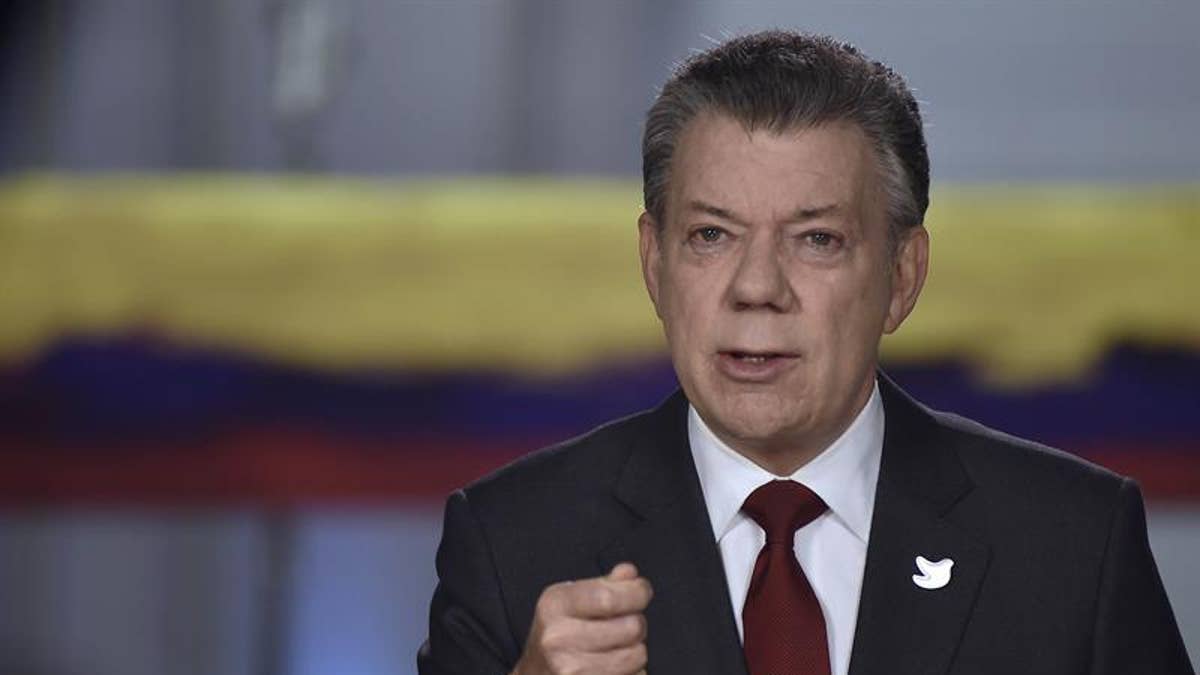
Bogota – Representatives of the Colombian government and FARC rebels have agreed that the signing of their revised peace agreement will take place Thursday in this capital.
The pact, which incorporates changes sought by those who voted down the original document in an Oct. 2 referendum, will be subject to ratification by Congress, the negotiators said Tuesday after a meeting.
President Juan Manuel Santos and FARC Commander Rodrigo Londoño Echeverry, better known as "Timochenko," will sign the accord Thursday at Bogota's Teatro Colon, the two delegations said in a joint statement.
"The consolidation of peace requires that we advance firmly toward the implementation of the accords allowing us to surmount so many years of conflict in Colombia," the statement said.
The Revolutionary Armed Forces of Colombia, or FARC, has battled a succession of Colombian governments since 1964.
Colombia's civil war - involving the army, the FARC and other guerrilla groups as well as rightist paramilitaries - has claimed at least 220,000 lives and displaced millions of people.
Santos addressed the nation shortly after the announcement of the signing ceremony.
"Since Nov. 12, when we reached the new accord with the FARC, he have presented and explained in detail the changes and adjustments achieved," the president said.
He then went on to cite endorsements of the new text from Colombia's main business federation, the Catholic Church, major media outlets, mayors and provincial governors, among others.
"The new accord has also received the support of the international community. The United States, the European Union, all the countries of our hemisphere united in the OAS, hailed and recognized the national dialogue and the inclusion of the results and recommendations in the new accord," Santos said.
"Unfortunately, some of the most radical 'no' sectors continue opposing the new accord, despite its clarifications and significant changes and adjustments. I truly regret that position," the president said.
The "no" campaign in the referendum was led by Santos' hard-line predecessor, Alvaro Uribe, who slammed the initial accord as too lenient on the rebels and presented the government with hundreds of proposed changes after it was voted down in the plebiscite amid turnout of less than 37 percent.
"After listening to all the proposals and alternatives, and by common agreement with the FARC, it is clear that the most appropriate and legitimate way to ratify this new accord is by way of the Congress of the Republic," Santos told Colombians from the presidential palace.
Recalling the failure of more than eight previous peace processes over the past 34 years, the president said that Colombians now have "the unique opportunity to close this painful chapter of our history."
"It is possible that this new accord is not totally satisfactory for everybody. That is how it is with all peace accords. There will always be critical voices. It is understandable and worthy of respect," Santos said.
"But my duty, my commitment - to the victims, to young people, to the peasants, to all of you - is to protect life, end the armed conflict and preserve the hope of peace and reconciliation for our country," he said.
